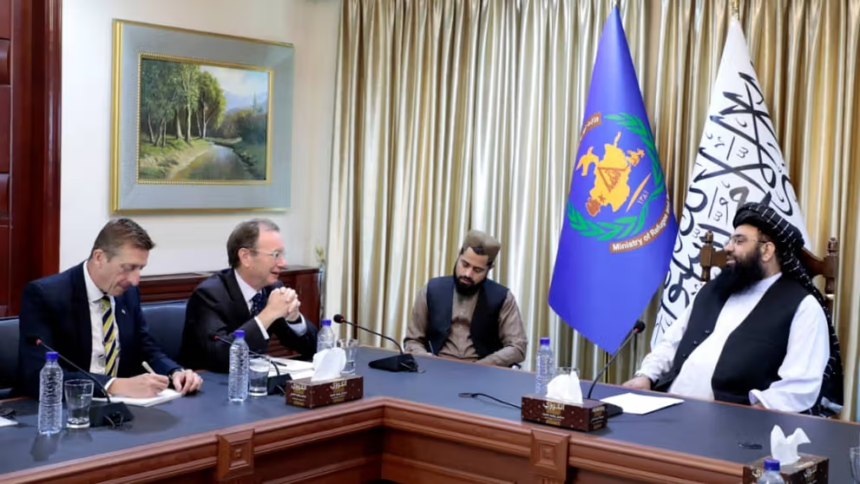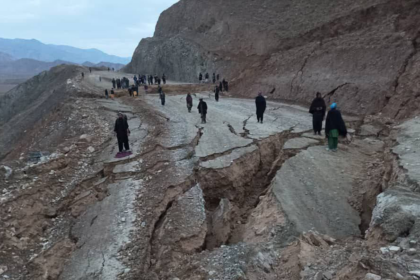RASC News Agency: Over ten weeks since the detention of an elderly British couple in Afghanistan, a recent high-level diplomatic engagement between the United Kingdom and the Taliban has failed to yield any mention of their release. Robert Dickson, the British charge d’affaires to Afghanistan, met with Mawlawi Abdul Kabir, the Taliban’s Acting Minister for Refugees and Repatriation. However, the fate of the detained British nationals was conspicuously absent from the agenda. A press release issued by the Taliban’s Ministry for Refugees outlined that the meeting focused on the situation of Afghanistani migrants, the coordination of humanitarian assistance, and the potential for expanding international cooperation. The statement quoted Dickson as saying that the United Nations is drafting a proposal concerning Afghanistan, which will soon be shared with the Taliban though neither the UN nor the British government has publicly confirmed or elaborated on such a development.
Despite the significance of the diplomatic encounter, there was no reference to Peter and Barbie, aged 79 and 75 respectively, who, along with an Afghanistani interpreter and an American citizen, were arrested by Taliban intelligence agents in Bamiyan on February 2, 2024. Their ongoing detention has fueled serious concern among human rights advocates and the international community. Although the Taliban released Phidie Hall, the American national, on March 28, the three remaining detainees remain in custody. The British couple’s family has issued public pleas, urging Foreign Secretary David Lammy to take a firmer stance and apply intensified diplomatic pressure to secure their immediate and unconditional release.
What further complicates the matter is the Taliban’s shifting justification for the arrests. At times, they have cited allegations of “forged documents”; at others, they have dismissed the matter as a “minor misunderstanding.” Despite earlier promises that the detainees would be released imminently, those assurances remain unfulfilled. The conspicuous omission of the detainees’ case in Dickson’s meeting with Taliban officials has reignited debate over Britain’s approach to the de facto rulers of Afghanistan. Critics argue that the absence of public pressure or accountability signals a troubling tolerance for violations of international norms and the rights of foreign nationals.






